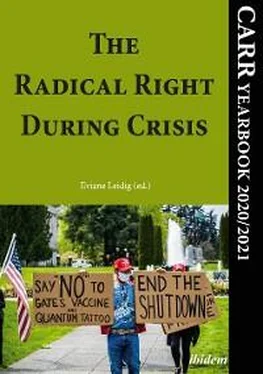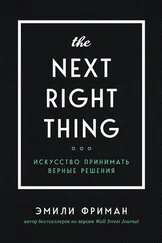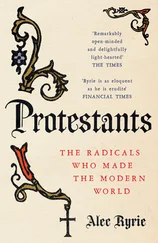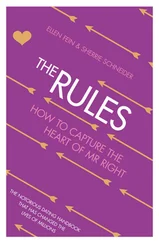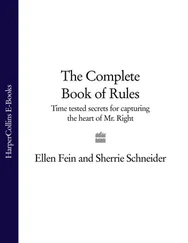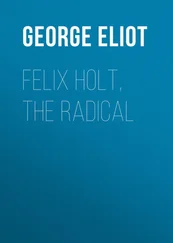Finally, the AfD constructs connections between past and present. Here, Georg Pazderski, head of the AfD fraction in the Berlin state parliament, points out that 8 May brought a new dictatorship, the German Democratic Republic (GDR), upon parts of the German people. 19He then stresses that nowadays, socialists are again gaining dominance in Germany, referring to the Left party as the legal successor of the GDR’s governing party SED together with its ‘leftist-green allies’, the Green party and the Social Democrats. He accuses them of not sincerely remembering the victims, but of misusing commemoration to defame conservative positions and the AfD. His lesson learned from 8 May and its aftermath is ‘Never again Socialism, be it left or right’. 20
Moreover, Stephan Protschka, AfD MP in the Bundestag, frames the NS rule as a ‘socialist tyranny’. 21By stating that the loss of freedom of opinion and criminalization of the opposition ‘can still happen today’, 22he alludes to the surveillance of parts of the AfD by the Office for the Protection of the Constitution, 23thus implicitly comparing the Nazi dictatorship with the current administration. An equivalence between Nazi Germany and the Merkel government is constructed even more explicitly by AfD Bavaria, claiming that not 8 May, but ‘Merkel stepping down from office would be a real day of liberation’. 24
This attempt to re-frame history on occasion of 8 May is part of a central AfD strategy: to offer an alternative German self-conception that does not deny but relativize the importance of the Holocaust; that demands less reflection on German guilt, instead allowing for patriotism. An interpretation of history that does not see the return of fascism as major danger for modern Germany, but warns against the dominance of what is framed as a socialist-green mainstream. An alternative national self-understanding, thus, that serves as the legitimizing backbone for the AfD’s radical right populist political positions.
Sophie Schmalenbergeris a Doctoral Fellow at CARR and doctoral candidate in global studies at Aarhus University.
1Elisabeth Schuhmacher, “German President Marks ‘Lonely’ World War II 75th anniversary,” Deutsche Welle, May 8, 2020, https://www.dw.com/en/german-president-marks-lonely-world-war-ii-75th-anniversary/a-53368453.
2Frank-Walter Steinmeier, Federal President Frank-Walter Steinmeier on the 75th anniversary of the liberation from National Socialism and the end of the Second World War in Europe at the Central Memorial of the Federal Republic of Germany to the Victims of War and Tyranny (Neue Wache), May 8, 2020, https://www.bundespraesident.de/SharedDocs/Downloads/DE/Reden/2020/05/200508-75-Jahre-Ende-WKII-Englisch.pdf?__blob=publicationFile.
3Esther Bajarano, Offener Brief an die Regierenden und alle Menschen, die aus der Geschichte lernen wollen. , January 26, 2020, https://www.auschwitz-komitee.de/offener-brief-an-die-regierenden-und-alle-menschen-die-aus-der-geschichte-lernen-wollen/.
4Jan Sternberg, “Gauland gegen Feiertag am 8. Mai: ‘Es war auch ein Tag der absoluten Niederlage’,” Redaktionsnetzwerk Deutschland , May 8, 2020 , https://www.rnd.de/politik/feiertag-am-8-mai-darum-ist-alexander-gauland-afd-dagegen-DGQCKQIZ5RDVJKY27ZASXC27XI.html.
5“Gauland provoziert mit Aussagen zum 8. Mai,” Jüdische Allgemeine , May 6, 2020, https://www.juedische-allgemeine.de/politik/gauland-provoziert-mit-aussagen-zum-8-mai/.
6Richard von Weizsäcker, Rede zur Gedenkveranstaltung im Plenarsaal des Deutschen Bundestages zum 40. Jahrestag des Endes des Zweiten Weltkrieges in Europa, May 8, 1985, https://www.bundespraesident.de/SharedDocs/Reden/DE/Richard-von-Weizsaecker/Reden/1985/05/19850508_Rede.html.
7Bernhard Forchtner, Lessons from the Past? Memory, Narrativity and Subjectivity (London: Palgrave Macmillan, 2016).
8Harald Welzer, Sabine Moller and Karoline Tschuggnall, Opa war kein Nazi. Nationalsozialismus und Holocaust im Familiengedächtnis (Frankfurt am Main: Fischer, 2014).
9Samuel Salzborn, Kollektive Unschuld. Die Abwehr Der Shoah Im Deutschen Erinnern (Leipzig: Hentrich & Hentrich, 2020).
10Wulf Kansteiner, “Fantasies of Innocence: The Holocaust Bystander as German Television Star,” in Völkermord zur Prime-Time: der Holocaust im Fernsehen , eds. J. Keilbach, B. Rasky and J. Starek (Wien: New Academic Press: 2019), 23-45.
11Stephan Protschka, “8. Mai: (K)ein Grund zum Feiern?”, YouTube video , 2:50, posted on May 7, 2020, https://www.youtube.com/watch?v=HSvqtx5Kh8w&feature=youtu.be.
12Protschka, “8. Mai”.
13Stephan Protschka, “8. Mai: (K)ein Grund zum Feiern?,” AfD Kompakt , May 8, 2020, https://afdkompakt.de/2020/05/08/stephan-protschka-8-mai-kein-grund-zum-feiern/
14Felix Krautkrämer, “Gauland: Der 8. Mai ist kein Freudentag,” Junge Freiheit , May 7, 2020, https://jungefreiheit.de/debatte/interview/2020/gauland-der-8-mai-ist-kein-freudentag/.
15Krautkrämer, “Gauland”.
16AfD Fraktion Brandenburg, “Der 8. Mai 1945 war das Ende des zweiten Weltkrieges in #Europa,” Facebook, May 8, 2020, https://www.facebook.com/afdfraktion/photos/a.1482727218676-491/2641414492807752/?type=3&theater.
17Krautkrämer, “Gauland”.
18Georg Pazderski, “Bundespräsident #Heuss fand einst bis heute gültige Worte: „Im Grunde genommen bleibt dieser 8.5.1945 die tragischste und fragwürdigste Paradoxie für jeden von uns,” Facebook, May 8, 2020, https://www.facebook.com/Pazderski.Georg/videos/582273155724817.
19Pazderski, “Bundespräsident”.
20Pazderski, “Bundespräsident”.
21Protschka, “8. Mai”.
22Protschka, “8. Mai”.
23Sophie Schmalenberger, “‘Long live freedom!’: How the AfD presents itself as Defender of the German Basic Law,” CARR Insight Blog , April 18, 2020, https://www.radicalrightanalysis.com/2020/04/18/long-live-freedom-how-the-afd-presents-itself-as-defender-of-the-german-basic-law/.
24AfD Bayern (@AfD_Bayern), “Nicht der 8. Mai—Merkels endgültiger Rückzug aus der Politik wird einst als Tag der Befreiung in die Geschichtsbücher eingehen,” Twitter, May 8, 2020. This Tweet was deleted by the AfD Bavaria (@AfD_Bayern) but has been captured by the author.
Putin’s Amendments to Russia’s Constitution Sparks Debate About Russian Nationalism
Valery Engel
On many occasions, Russian President Vladimir Putin has called for the adoption of new amendments to the Russian Constitution. Putin has usually referenced several reasons why the head of state would want to change the basic law of the country, which is only twenty-seven years old. This is the desire to expand the powers of the Duma (parliament), and limit the tenure of the presidency to two terms without the fateful word “in a row”, which allowed Putin to be elected four times, to ensure the immunity of former presidents and establish the priority of the constitution of the Russian Federation over international law.
The gossip behind all this activity is Putin’s desire to remain at the helm of the state after 2024, moving to the Chairperson of the Parliament, and recently, his former adviser Vladislav Surkov 1said that after the adoption of the amendments Putin’s presidential terms must be reset and he has to get a new opportunity to run again (this statement was quickly disavowed by Kremlin, but in the end of the campaign this amendment appeared in the collection).
By the president’s decision, a working group was formed 2to prepare proposals for amending the constitution. This is not to say that the idea of updating the constitution caused a stir among the population of the country. Until recently, only professional politicians, state media and individual bloggers showed interest in the amendments. The authorities doubt that it will be able to ensure a decent turnout at the referendum. In connection with that, Putin proposed to make the vote on a weekday and declare this date a day off.
Читать дальше
